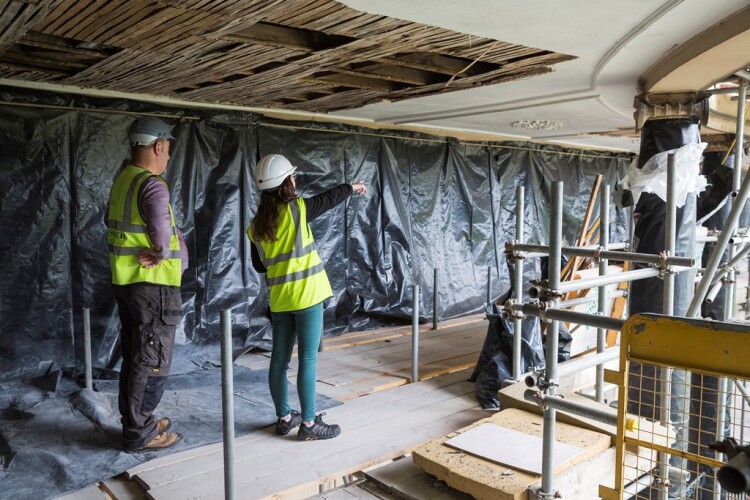According to a new report, retrofitting the UK’s historic buildings could generate £35bn of economic output a year while creating new construction jobs and supporting the country’s net zero ambitions. However, it would require a newly-trained army of workers to get the job done.
An estimated 100,000 people currently work on historic buildings. But up to 105,000 new workers - including 14,500 more electricians and 14,300 more plumbers - will be needed each year until 2050 to focus solely on upgrading buildings built before 1919.
The report has been produced by the National Trust, Historic England, Peabody, The Crown Estate and Grosvenor – organisations that all own substantial numbers of historic buildings.
The organisations have joined together to highlight the social, environmental and economic opportunities offered by building a workforce with the necessary skills and training to ensure the UK’s historic buildings contribute to a net zero future.
Retrofitting requires skilled workers, regardless of the age and construction of a building. But adapting historic buildings requires even more specialist skills and training, they say, to ensure heritage characteristics are protected and the work undertaken is appropriate to the type of construction.
Tor Burrows, Grosvenor’s executive director of sustainability and innovation, said: “As Chris Skidmore’s net zero review identified, we need to grasp the historic opportunity tackling climate change offers us. The Environmental Audit Committee has called for a national mobilisation on energy efficiency. We believe this captures the urgency of the task. The UK needs a long-term national retrofit strategy, led by the government, positively bringing together training, funding, and standards to sensitively decarbonise our historic buildings.
“Only then can we truly seize this opportunity to tackle a significant source of greenhouse emissions while protecting our much-loved built heritage.

“The construction industry, businesses and training providers need support to scale up. That’s why we’re asking the government to work with us on creating a national retrofit strategy that sets out a clear path for upskilling the current workforce while bringing in a whole new generation.
“Much of this will need to take place at a local level, with employers, local authorities and civic society helping to develop area-based retrofit programmes and training initiatives.”
The report asks the government to make the apprenticeship levy more flexible, allowing unspent funds to be channelled into training more people in the heritage retrofit field. £3.3bn of unused apprenticeship levy was returned to the Treasury between May 2019 and July 2022.
Peabody chair Lord Kerslake said: “The benefits of prioritising our historic buildings are economic as well as environmental and social. They are an important source of prosperity and growth, with the heritage sector directly contributing £14.7bn to the economy in 2019.
“Making these buildings energy efficient will stimulate spending in the construction industry, support around 290,000 jobs in supply chains and boost heritage-related tourism and hospitality.
“And where needed, making older homes more energy efficient will transform the lives of the people who live and work in them, reducing household energy bills and improving health and wellbeing.”
National Trust director general Hilary McGrady added: “From Georgian town houses to the mills and factories that kick-started our industrial revolution, our historic buildings play a significant role in society, connecting people and places – one of the key pillars of the government’s levelling up strategy. The stewardship of our built heritage is in our hands, and we must ensure we prepare it for the challenges of climate change. It’s a significant task, but it’s one we can achieve through co-ordinated action. But that action must be taken now.”
Got a story? Email news@theconstructionindex.co.uk



